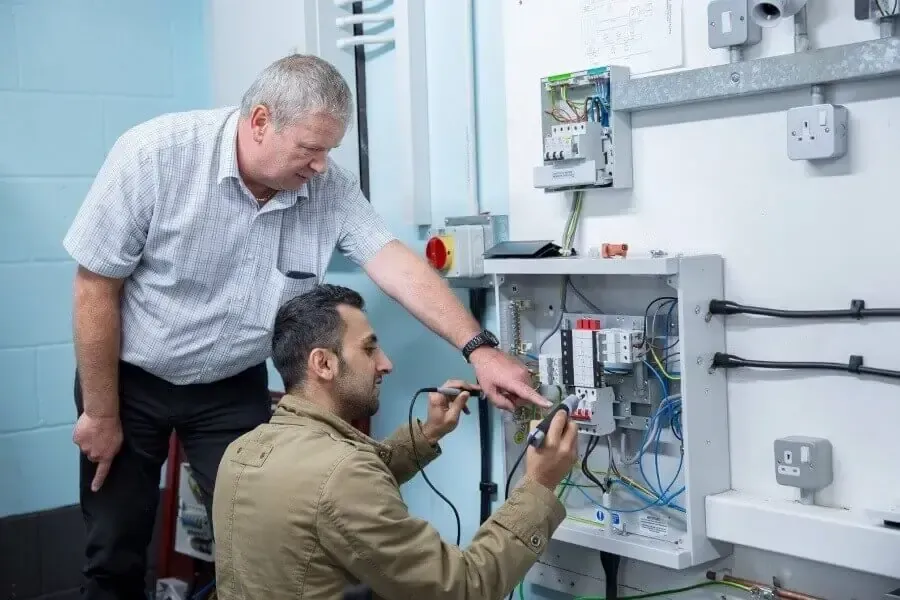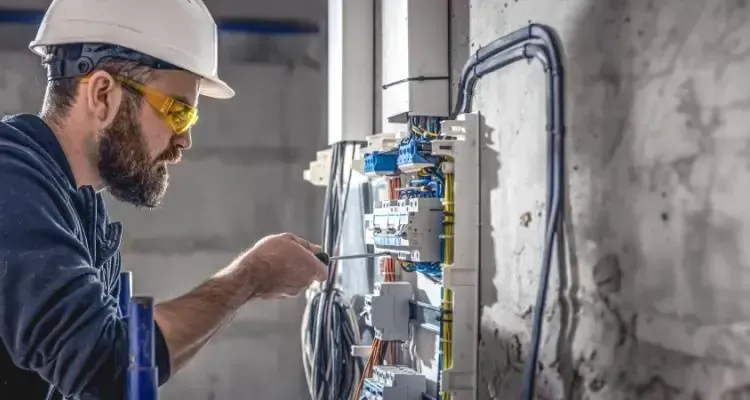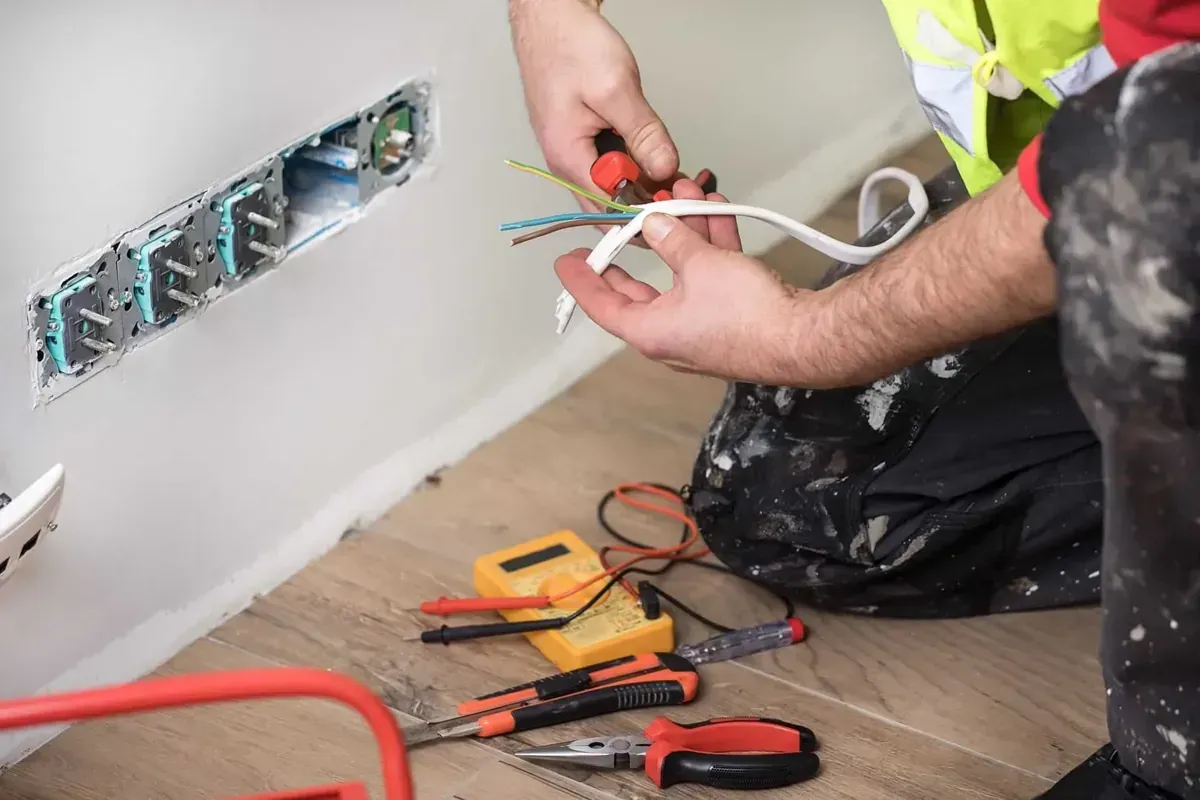Navigating Electrical Panel Upgrades in Throop: A Homeowner's Guide
Your home's electrical panel serves as the central hub distributing power throughout your property, making it one of the most critical components of your electrical system. As homeowners add modern appliances, electric vehicles, smart home technology, and power-hungry devices, many older electrical panels struggle to meet these increased demands. Understanding when your panel needs upgrading, what the process involves, and how to navigate the project successfully ensures your home's electrical system remains safe, reliable, and capable of supporting your family's needs.
Understanding Your Electrical Panel's Role
The electrical panel, often called a breaker box or service panel, receives power from utility lines and distributes it through individual circuits to outlets, lights, and appliances throughout your home. Circuit breakers within the panel protect each circuit from overloads by automatically shutting off power when current exceeds safe levels. Panel capacity is measured in amperes (amps), indicating the maximum electrical current your system can safely deliver. Older homes often have 60 or 100 amp panels installed when electricity demands were far lower than today. Modern homes typically require 200 amp service to accommodate contemporary lifestyles and appliances.
Signs Your Panel Needs Upgrading
Several clear indicators tell you when your electrical panel requires replacement or upgrading. Recognizing these signs early prevents problems from escalating into dangerous situations. Frequent breaker trips signal that circuits regularly exceed their designed capacity. While occasional trips during unusual circumstances are normal, repeated tripping during everyday activities means your system cannot handle your electrical demands. Flickering or dimming lights when appliances operate indicate voltage drops from inadequate electrical capacity.
Your wiring struggles to deliver enough power for everything running simultaneously. This problem typically worsens as you add more devices over time. Burning smells or scorch marks around your electrical panel represent serious fire hazards requiring immediate professional attention. These signs indicate overheating from loose connections, failing breakers, or overloaded circuits. Never ignore these warning signals. Buzzing or crackling sounds from your panel suggest loose connections or failing components. Electrical current should flow silently through properly functioning equipment. Any audible noise indicates abnormal conditions that can rapidly deteriorate into fire hazards.
Benefits of Upgrading Your Electrical Panel
Panel upgrades deliver numerous advantages beyond simply preventing breaker trips. Safety improvements rank as the primary benefit. Modern panels incorporate arc fault circuit interrupters (AFCIs) and ground fault circuit interrupters (GFCIs) detecting dangerous conditions and shutting off power before fires or shocks occur. Increased capacity supports modern electrical demands without overloading your system. A 200 amp panel provides headroom for electric vehicle chargers, high-efficiency heat pumps, induction cooktops, and multiple simultaneous appliances that 100 amp service cannot safely handle.
Home value increases with updated electrical systems. Buyers recognize that homes with modern electrical infrastructure require no immediate electrical work, making properties more attractive and valuable. Real estate agents often highlight electrical upgrades as significant selling points. Insurance benefits sometimes include lower premiums for homes with updated electrical systems. Some insurers charge higher rates or refuse coverage for homes with outdated panels. Upgrading can improve insurability and reduce costs.
The Panel Upgrade Process
Understanding what panel upgrades involve helps homeowners prepare for the project and set appropriate expectations. Initial assessment begins with professional electricians evaluating your current panel, electrical demands, and upgrade requirements. Electricians measure your home's total electrical load, identify necessary circuits, and determine appropriate panel size for your needs. Permit acquisition represents a critical step that licensed electricians handle. Local building departments require permits for panel upgrades ensuring work meets electrical codes and safety standards. Permit processes involve submitting plans, paying fees, and scheduling inspections.
Utility coordination becomes necessary because panel upgrades often require utility company involvement. Power must be disconnected at the meter before work begins. Utilities may need to upgrade service entrance cables, weatherheads, or meters depending on your situation. Panel installation takes a full day or more depending on project complexity. Electricians disconnect your old panel, install the new panel, reconnect all circuits, ensure proper grounding, and verify everything functions correctly. Your home will be without power during significant portions of the installation.
Choosing the Right Panel Size
The 200 amp panel represents the standard for most modern homes. This capacity handles typical residential electrical loads including major appliances, HVAC systems, lighting, outlets, and reasonable future growth. Most homeowners find 200 amp service adequate for their lifetimes. Load calculations help determine appropriate panel size by adding up all your home's electrical demands. Licensed electricians perform these calculations considering simultaneous use factors, future additions, and safety margins. These professional calculations ensure you get the right size panel.
Cost Factors and Budgeting
Panel upgrade costs vary significantly based on numerous factors. Panel size affects material costs with 200 amp panels costing more than 100 amp models. However, the incremental cost difference is modest compared to labor and other expenses. Service entrance upgrades add substantial costs when utility equipment requires replacement. Upgrading from 100 to 200 amp service often necessitates new service entrance cables, weather heads, and meter bases. Utility company fees and coordination extend both costs and timelines.
Selecting Qualified Electricians
Choosing the right electrical contractor ensures quality work, code compliance, and safety. Licensing verification represents your first screening criterion. Pennsylvania requires electrical contractors to hold valid licenses. Verify license status through appropriate state agencies. Experience with panel upgrades specifically matters because this specialized work differs from general electrical repairs. Ask potential contractors how many electrical panel upgrades they complete annually and request references from recent similar projects. Written estimates should detail all work included, materials specifications, timeline expectations, permit handling, and total costs. Compare multiple estimates ensuring you understand what each contractor proposes.
Preparing for Your Panel Upgrade
Homeowner preparation before upgrade day ensures smooth project execution. Backup power planning becomes important because your home will be without electricity during portions of the installation. Charge devices, prepare flashlights, consider alternative meal plans, and adjust thermostats before work begins. Panel access preparation involves clearing the area around your existing panel. Remove stored items, furniture, or obstacles blocking electrician access. Clear pathways between your panel, service entrance, and areas where electricians will work.
Conclusion
Electrical panel upgrades represent significant investments in your home's safety, functionality, and value. Recognizing when upgrades become necessary, understanding the process, and working with qualified electricians ensures successful projects meeting your family's needs for decades. Modern electrical panels provide the capacity, safety features, and reliability that contemporary homes require. Upgrading outdated panels prevents safety hazards while enabling you to enjoy modern appliances and technologies without electrical limitations.
Contact Bee Lectric at (570) 525-5908 to schedule your electrical panel evaluation. Our experienced technicians will assess your current system, explain your options, and provide detailed estimates for upgrades ensuring your home's electrical system safely supports your lifestyle both now and into the future.



